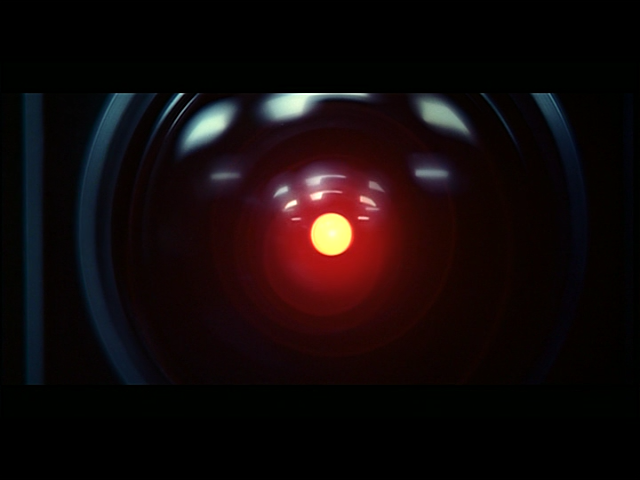What’s your new favorite color now???
You see the colors you do because —
- As an ape and a mammal, you have eyes that have evolved to make distinctions among those colors, e.g. to tell red fruit from green leaves, or orange tigers from brown horses.
- The earth’s atmosphere is mostly transparent to those colors (frequencies of light). Chemicals that are opaque to those colors tend to get burned off from the atmosphere by sunlight.
- The sun emits most of its energy in those frequencies. This both ① burns off the opaque chemicals in the atmosphere, and ② means those colors are the best for an animal to use to see things.
Your eye was not “designed” to see red, but being able to see red is a good trick for an ape that sometimes eats red fruit or red meat.
The earth’s atmosphere was not “designed” to be transparent to certain colors of light, but any chemical that isn’t transparent to a frequency of light will absorb energy from it and thus tend to burn off.
The sun was not “designed” for us to see by, but using the available light to see is a great trick for animals of all kinds.
In other words:
- eyes that worked well in those color frequencies we know as “visible light” were able to find food and dodge danger better.
- Those creatures lived longer and had babies who shared those traits
- eyes that were more sensitive to other frequencies couldn’t work as well due to the environment they existed in, and as a result didn’t survive as well.
- Not as many of them left to mate (hell, could have had a hard time even finding a mate!)
This is how natural selection optimizes life traits. It takes hundreds of thousands of generations for profound effects to emerge. You’re currently at the bleeding edge of life tech. Enjoy the details!
Eyes have evolved in several separate animal lineages. You, a bee, an octopus, and a box-jellyfish all have eyes, but their most recent common ancestors did not have eyes. Your eyes are different in many ways from those other species’, but they all have to make use of sunlight filtered through a nitrogen-oxygen atmosphere and water. So it’s unsurprising that they end up with some similar “design” features.
it’s almost as if life on this planet evolved a certain way over hundreds of millions of years because it increased our rate of survival. ¯\_(ツ)_/¯
Hey, Relevant XKCD time!
The sky is blue. Why, you ask, is the sky blue? Because air is very very slightly blue.
You could ask why is air very very slightly blue, and the answer would have to do with Rayleigh Scattering, and probably some other effects.
You’ll get a similar, but slightly different response with water. Water’s color mostly has to do with the absorption of certain frequencies of light, whereas air’s color has to do primarily with the deflection of certain frequencies of light, but at the end of the day, both substances interact with light in a way that preferentially funnels certain frequencies of light away from them (and towards the observer).
Now, why is this relevant?
Because “color” is a word we use to describe an experience, or perhaps an observation, rather than a physical property. It’s not “real” in an empirical sense, since what we’re experiencing or observing is light that reflected from the object, rather than some physical property of the object itself.
Now, that’s not to say that color is all made up; a red cube does, verifiably, emit photons around 650 nanometers in wavelength. A violet cube will emit photons around 400 nm. Well, what wavelength does a magenta cube emit?
Trick question. It emits both 650 nm and 400 nm. It’s not a color on the visible light spectrum, it’s our brain’s interpretation of those two simultaneous signals.
So, while objects may absorb other frequencies of light, we describe their “color” by what they emit, or cause-to-be-deflected-into-our-eyes (depending upon the specifics of the mechanism, with Cherenkov Radiation being an extreme example).
Now for the fun stuff. As discussed above, air is very slightly blue, but that’s only if your eyes can see blue. Just on the other edge of infrared from visible light is something called the Terahertz Gap. It’s an area of electromagnetic radiation that penetrates most of the materials we construct things out of (paper, wood, clothing, plastic, ceramic, etc), but is quickly absorbed by air. It’s very close to the frequencies used for millimeter wave scanning, like in airports. Because things like cardboard are invisible to it, it can be used in automated manufacturing processes to make a camera that inspects items coming off an assembly line after they’ve been packaged. This is especially helpful in electronics manufacturing, because you can photograph the inside of a computer chip.
Thank you very much!
Mm this one doesn’t work for me. Why is an object the colors of light it absorbs rather than those it reflects? Neither is instrinsically preferential. However, if an object is red, it is reflecting ONLY red light. Therefore it is doing something special with RED light. I’d say that breaks the tie and the object should be considered red.
When we say something is a certain color, we’re talking about the color reflecting off of it. It’s color is the color that actually reaches our eyes.
Colour is an illusion, it’s a bandwidth of visible light within the spectrum. Colour does not exist in nature technically without the eye to perceive it, just another electromagnetic wave
Woah. Never really thought of it like that. One of those “well duh” things that we just take for granted and forget about
Which is why different animals perceive color in different ways. I’d have to look for it but I think it’s tigers that see green in a totally different way than people do.
Some prey animals see orange as green which is why tigers coats are so effective in a green jungle
Maybe I even see red and green completely different to you. Maybe opposite, or something else entirely. How would we know?
That’s a thought exercise I first explored when I was tripping on LSD one time. Once you accept that colors could look entirely different, what’s to stop us from imagining that the entire makeup of our perception is adjusted to the individual, but the chaos of the universe keeps all of our unique perceptions in enough alignment that we can interact seamlessly with one another. The concept of an “alien green man” could be what someone actually sees the whole human species as, and the words “alien green man” just fit a different description to that individual, so when refrenced, that person envisions an alien being as foreign as the “alien green man” is to us, and can communicate with others on that concept.
Perception defines your experience
color is a neurological construct
And what color is a stoplight?
I still like red
@BitterSweet Citations needed; I think you will find the facts are the opposite of what you just said.
My 10 year old cousin sounding like a dumbass while I was high so I posted this.
Does this work for other colors?
No
You forgot to switch accounts before replying to yourself lol
Oops yeah I did
Now you switched when you shouldn’t have idiiot




